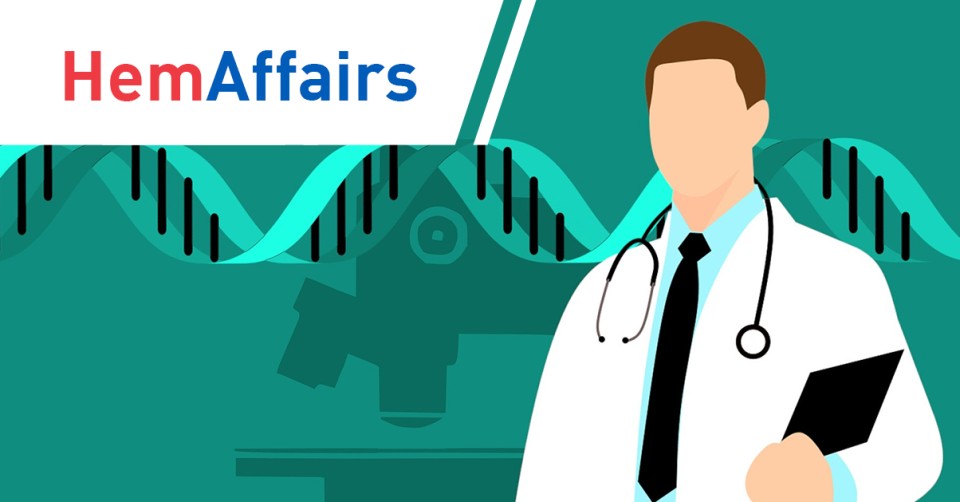This information originally appeared on the previous EHA website. Links to other pages may be inactive.

Gene (editing) therapy continues to break ground in hematology, showing promising results in tackling severe blood cancers. Yet, its uptake in the European Union is slow, with few patients benefiting from it so far. EHA advocates for greater support for gene therapy in upcoming EU health-related funding programs to address lingering obstacles.
Hematology research and EU funding for R&I
Despite tremendous progress over the past framework programs (FP6 and FP7), health and healthcare attract a relatively small share of EU funding for research and innovation (R&I). In total €2 billion of the Horizon 2020 budget (€30 billion) is foreseen for topics pertaining to ‘Health, demographic change and wellbeing’ for the period 2018-2020. That is 6.6% of the total budget. Public funding for academic hematology research is also lagging behind support for other health disciplines (e.g. oncology, neurology). Between 2016 and 2018, only €47 million was granted to hematology-related EU project proposals under Horizon 2020.
EHA is working consistently to raise awareness of the crucial role of hematology research, not only in improving understanding of and developing innovative treatments for (malignant and non-malignant) blood disorders, but also for innovation in other medical disciplines. The important contribution of hematology to healthcare needs to be reflected in funding levels; more EU funding is needed to optimize the impact of hematology research on medical innovation and public health. Genetic and cellular therapies in particular hold considerable promise for patients, such as one of the latest ground-breaking discoveries in the field: CAR T cell therapy.
Challenges to CAR T cell therapy uptake
CAR T cell therapy is a type of immunotherapy through which the patient’s T cells (a type of white blood cells) are edited to enable the immune system to attack and destroy cancer cells. It has shown good remission rates in patients suffering from severe forms of blood cancers and brings high hopes for improving their quality of life. Yet, uptake of this treatment in Europe compared to the US and China is slow, severely limiting patients’ ability to benefit from it.
Several challenges remain with regard to CAR T cell therapy:
- Clinical research and trials: The translation of preclinical research into clinical trials is still problematic, which is a barrier to developing the therapy across the EU. In addition, the treatment is still associated with life-threatening side effects. Further clinical research is needed in order to reduce the latter and prolong the efficacy of the treatment while causing the least discomfort to patients.
- Geographical access: Pooling resources from the European hematology community, i.a. by fostering collaborative research in gene therapy and promoting joint health technology assessments, is needed to increase the availability of CAR T cell therapy across the EU.
- Market access: CAR T cell therapy is the epitome of personalized medicine as it entails engineering the patient’s own cell. It thus provides a treatment tailored to each patient. This comes at a cost, however: development of CAR T cell therapies is expensive and price tags are steep, delaying time to market and severely restricting patient access. Although the first two CAR T cell drugs were approved by the European Union in August 2018, some countries (e.g. the United Kingdom) have not yet granted them access to the national market.
- Communication: How to communicate about gene therapy towards patients, caregivers and the public? The image and perception of advanced therapies should not be neglected in R&I support programs as they can become a hurdle to patient access to effective treatments. Hematologists need policy support to tackle potentially negative perceptions of CAR T cell therapy. For example, given the high price tags, CAR T cell could be seen as “drugs for the rich”.
Future EU R&I priorities for health
EHA is actively advocating for more funding opportunities for the development of gene and cell therapies, and for improving the affordability and accessibility of these therapies so that they will benefit as many patients as possible. EHA welcomes the fact that the Innovative Medicines Initiative (IMI) has recognized the need to further support the translation of advanced therapies to patients and has identified CAR T cell therapy as one of the key topics for the next IMI call for proposals (Call 18), to be published in June 2019.
In addition, EHA sees the upcoming EU R&I framework program, Horizon Europe (2021-2027), as an essential instrument to advance CAR T cell therapy. The declaration of the Romanian Minister of Health, Sorina Pintea, in favor of pursuing discussions on access to new therapies and medication is encouraging. Member States will continue to exchange on this topic in April upon finalizing the overall priorities of Horizon Europe. EHA works together with other stakeholders to shape the Horizon Europe strategic priorities (2021-2024) and first work program (for 2021-2022), to ensure that they will encompass gene therapy.